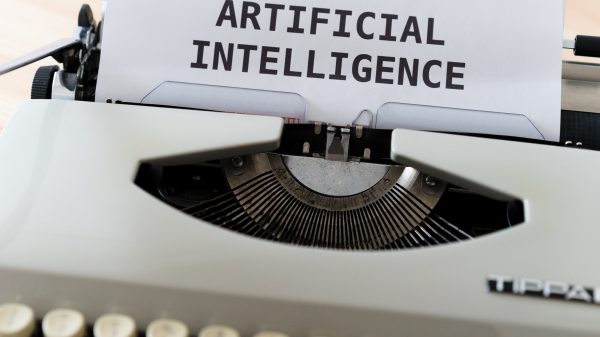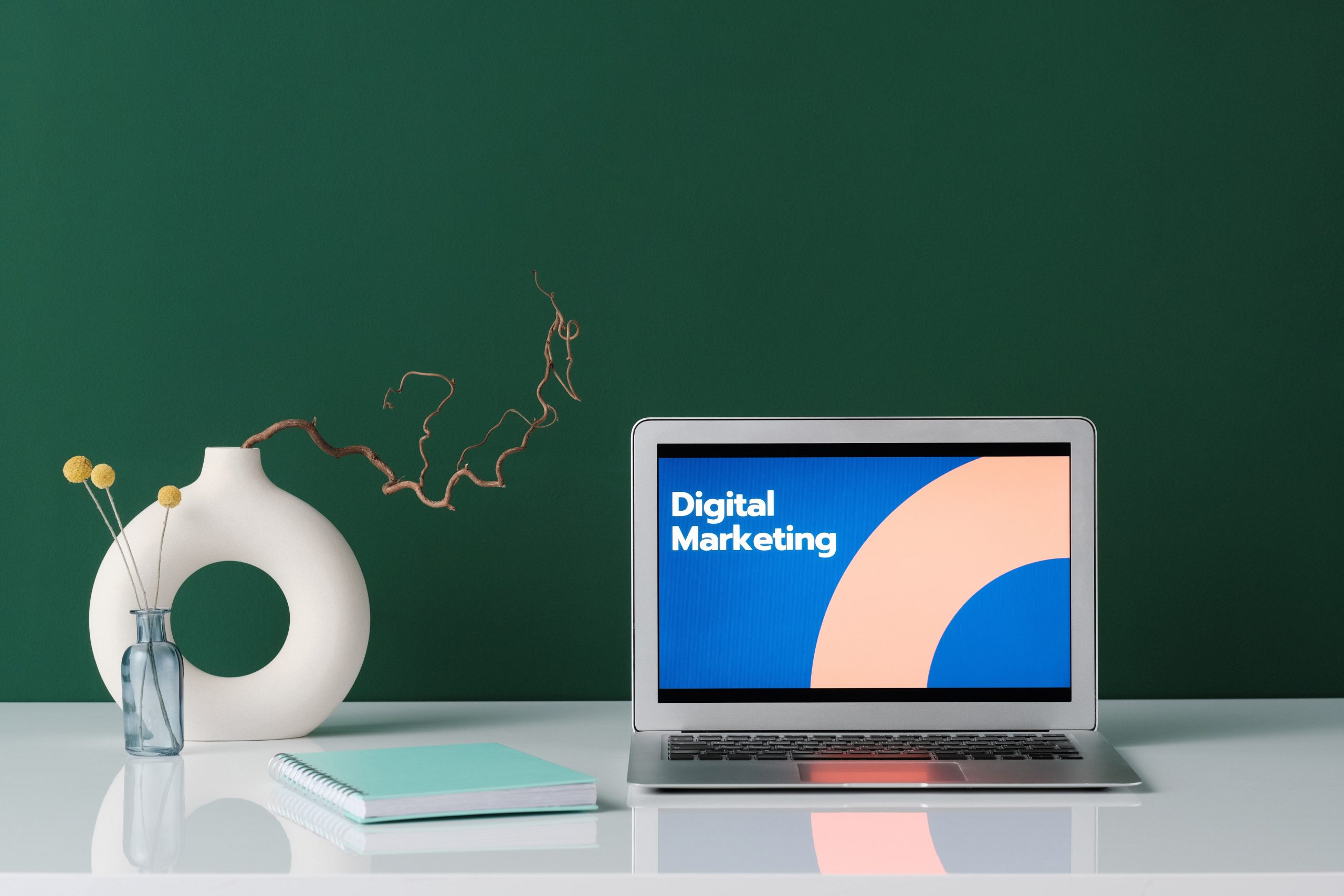As the world hurtles towards an era of advanced artificial intelligence (AI), marketers find themselves at a crucial crossroads. With the rapid evolution of technology, the landscape of marketing technology (martech) is transforming at an unprecedented pace. The profound impact AI has had on various industries is undeniable, and the martech sector is certainly not exempt from its influence. In this age of AI, where machines can process vast amounts of data and learn from it, marketers must grapple with the possibilities and implications that lie ahead. In this article, we will explore three possible scenarios for the future of martech in the Age of AI, shedding light on both exciting opportunities and potential challenges that marketers may encounter along their journey into this brave new world.
The Rise of Martech in the Age of AI
With the rapid advancements in technology, the rise of martech (marketing technology) in the age of AI has become inevitable. Businesses are now leveraging AI to enhance their marketing strategies and gain a competitive edge. AI-powered martech tools offer an unprecedented level of precision and personalization, allowing marketers to target customers with tailor-made messages based on their preferences, behavior, and buying patterns.
One significant impact of AI is the ability to analyze vast amounts of data in real-time. This allows marketers to gain valuable insights into customer behavior and make informed decisions about their marketing campaigns. For example, AI can analyze customer interactions on social media platforms and identify key trends or sentiments that could inform future marketing strategies. Additionally, AI can automate various tasks such as content creation and ad placement, saving both time and resources for businesses.
The rise of martech also presents new challenges for marketers. While AI offers great opportunities for automation, it also raises concerns about data privacy and security. Marketers need to ensure that they are transparent about how customer data is collected, used, and protected. Ethical considerations should be at the forefront when using AI-powered martech tools to avoid any potential misuse or negative impact on consumers.
In conclusion, the rise of martech in the age of AI brings immense possibilities for marketers seeking innovative ways to connect with customers. Leveraging AI-powered technologies in marketing can unlock new levels of efficiency, personalization,and insights-driven decision-making.

Scenario 1: Integration of AI into existing martech platforms
As we navigate the Age of AI, one possible scenario for the future of martech is the integration of artificial intelligence into existing martech platforms. This scenario holds great promise for marketers, as AI has the potential to revolutionize how they understand and engage with their customers. By combining AI capabilities with existing martech tools such as customer relationship management (CRM) systems and marketing automation platforms, businesses can unlock powerful insights and drive more personalized marketing campaigns.
One key benefit of integrating AI into existing martech platforms is enhanced data analysis. With AI algorithms capable of analyzing vast amounts of data in real-time, marketers can gain a deeper understanding of their customers’ behavior and preferences. This enables them to create more targeted campaigns that resonate with their audience. Furthermore, by automating repetitive tasks through AI-powered tools, marketers can free up time to focus on strategic initiatives like brand building and innovation.
Another advantage lies in optimizing lead generation and conversion rates. Through predictive analytics and machine learning algorithms, integrated martech platforms can identify patterns and trends that may go unnoticed by human analysts alone. Armed with actionable insights provided by AI technology, marketers can tailor their messaging to specific audiences at the right time and optimize conversion rates.
By harnessing the power of AI within existing martech platforms, businesses can gain a competitive edge in today’s digital landscape. It is essential for organizations to embrace this scenario as they look towards an increasingly sophisticated future powered by artificial intelligence – delivering personalized experiences at scale while driving growth through effective marketing strategies.
Scenario 2: Emergence of specialized AI-powered martech tools
In Scenario 2, we imagine a future where the martech landscape is transformed by the emergence of specialized AI-powered tools. These tools are designed to address specific marketing challenges and provide highly targeted solutions. With advancements in machine learning and natural language processing, these tools can analyze vast amounts of data and provide valuable insights that were previously unattainable.
One example of such a tool is an AI-powered content optimization tool. This tool leverages machine learning algorithms to analyze audience engagement patterns, search engine trends, and social media discussions to optimize content for maximum impact. It can recommend changes in headlines, keywords, and even suggest new topics based on real-time data analysis.
Another specialized AI-powered martech tool could be an automated customer segmentation tool. Traditional customer segmentation methods often require extensive manual efforts and may not always yield accurate results. However, with advanced AI algorithms, this tool can automatically identify unique segments based on various demographic factors, online behavior, purchasing patterns, and even sentiment analysis of customer feedback.
These specialized AI-powered martech tools have the potential to revolutionize how marketers work by providing them with actionable insights derived from complex data analysis tasks that would have otherwise required expert human intervention.

Scenario 3: Consolidation and centralization of martech and AI
In Scenario 3, the future of martech in the Age of AI takes a dramatic turn with consolidation and centralization becoming the dominant trend. As AI technology evolves and becomes more sophisticated, companies will start recognizing the need for a unified martech solution that can harness the full potential of data-driven marketing. This consolidation will lead to larger platforms that bring together various tools and technologies under one roof, providing marketers with seamless integration and collaboration capabilities.
With consolidated martech platforms, marketers will benefit from centralized data management, streamlined workflows, and a holistic view of their customers’ journey. By leveraging AI algorithms across all aspects of marketing operations – from data analysis to campaign automation to personalized content creation – companies can achieve unprecedented levels of efficiency and effectiveness. The power unleashed by centralizing martech tools with advanced AI capabilities could revolutionize how brands engage with customers at every touchpoint, leading to enhanced customer experiences and increased conversion rates.
However, there are potential concerns associated with this scenario as well. Consolidation may result in limited choice for marketers who rely on specialized tools that might not be incorporated into these large-scale platforms. Additionally, centralization raises questions about data privacy and security as more sensitive customer information is concentrated within a single platform. Nevertheless, if handled appropriately, consolidation coupled with robust AI capabilities has the potential to elevate marketing strategies to new heights, delivering unparalleled results in an increasingly competitive landscape.
Potential benefits and challenges for businesses
One potential benefit for businesses in the Age of AI is increased efficiency. With advanced AI technology, businesses will be able to automate repetitive tasks and processes, allowing employees to focus on more strategic and creative work. This can lead to higher productivity levels and faster decision-making, ultimately giving businesses a competitive edge.
However, along with these benefits come several challenges. One major challenge is integrating AI into existing business systems. Many businesses rely on legacy systems that may not be compatible with new technology, making it difficult to adopt and implement AI solutions. Additionally, there is a need for skilled professionals who can understand and manage AI systems effectively. This demand for specialized expertise may pose challenges for businesses in terms of recruitment and training.
Overall, while the potential benefits of adopting AI in business operations are significant, there are also real challenges that must be addressed. Businesses must carefully assess their readiness for implementing AI, considering factors such as system compatibility and the availability of skilled professionals. By doing so, they can maximize the potential advantages while mitigating any obstacles that may arise along the way.

Implications for marketers and their strategies
The rise of AI in the martech industry presents both exciting opportunities and challenges for marketers. On one hand, it has the potential to revolutionize customer targeting and personalization by analyzing vast amounts of data and delivering highly relevant content to consumers. This can lead to improved customer experiences, increased conversions, and stronger brand loyalty.
However, marketers must also navigate the ethical implications of using AI in their strategies. As AI becomes more sophisticated, there is a concern that it could manipulate consumer behavior and exploit their vulnerabilities. Marketers need to tread carefully and ensure that they are using AI responsibly and ethically, taking into account factors such as privacy, consent, and transparency.
Furthermore, with the increasing reliance on AI in marketing strategies, there is a growing demand for skilled professionals who can effectively leverage this technology. Marketers will need to upskill themselves or bring in experts who understand not only how to use AI tools but also how to interpret the insights generated by these tools. The future of martech lies at the intersection of human expertise and machine capabilities – those who can harness both will have a distinct advantage in driving successful marketing strategies in the age of AI.
Conclusion: The exciting future ahead for martech and AI
In conclusion, the future of martech in the Age of AI holds immense excitement and potential. As technology continues to advance at an unprecedented pace, marketers have a unique opportunity to leverage AI and automation to enhance their strategies and drive significant results. With the ability to analyze vast amounts of data in real-time, AI-powered martech tools can provide invaluable insights into customer behavior, preferences, and trends. This intelligence allows marketers to effectively target their audience with personalized messages and offers, resulting in higher engagement rates and conversions.
Moreover, as AI continues to evolve, we can expect even greater advancements in martech capabilities. From chatbots that deliver personalized customer experiences through natural language processing to predictive analytics that anticipate consumer needs before they even arise, the possibilities for using AI in marketing are truly limitless. By leveraging these technologies strategically and ethically, businesses will be able to streamline operations, optimize campaigns, and ultimately deliver more value to their customers.
However, it’s important not to overlook the potential challenges that may arise with this rapid integration of AI into martech. Marketers must remain mindful of ethical concerns surrounding data privacy and security as well as the need for human oversight in decision-making processes. As technology continues its march forward, it is crucial for businesses to strike a balance between harnessing the power of AI while maintaining genuine human connection with customers.
All in all, the exciting future ahead for martech lies at the intersection of human creativity and artificial intelligence.


































